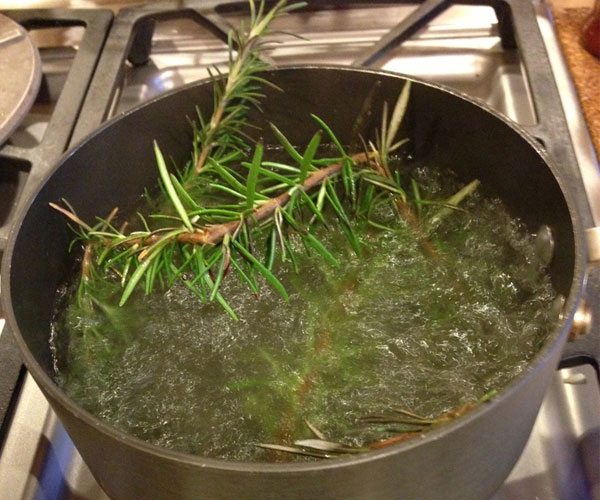Blogs
Does boiling rosemary tea make it bitter?
Rosemary tea is a popular herbal drink known for its refreshing taste and numerous health benefits, including improved digestion, enhanced memory, and reduced inflammation. However, many people wonder whether boiling rosemary tea can make it bitter.
The answer depends on how long and how intensely you boil it. While a mild and properly brewed rosemary tea has a pleasant, earthy flavor, over-boiling can extract excessive tannins and essential oils, leading to an unpleasant bitterness.
In this article, we’ll explore why rosemary tea can become bitter, what factors contribute to this, and the best ways to brew it for a perfectly balanced taste.

Why does rosemary tea become bitter?
Rosemary tea can turn bitter due to several factors, including boiling time, temperature, and the amount of rosemary used. Understanding these factors can help you avoid unwanted bitterness and enjoy a smoother, more balanced flavor.
Over-Boiling
- Boiling rosemary for too long (more than 10-15 minutes) can extract excessive tannins and essential oils, leading to a harsh, bitter taste.
- The longer rosemary is exposed to heat, the stronger and more astringent the flavor becomes.
High temperature
- Boiling rosemary at extremely high heat can break down certain compounds, intensifying bitterness.
- A gentle simmer or steeping in hot water is often better for maintaining a pleasant taste.
Using too much rosemary
- A high concentration of rosemary leaves in a small amount of water can overpower the tea and make it taste excessively strong and bitter.
- The recommended amount is 1-2 teaspoons of dried rosemary or 1 sprig of fresh rosemary per cup of water.
Type of rosemary used
- Fresh vs. dried rosemary: Dried rosemary has a more concentrated flavor, making it more prone to bitterness if over-boiled.
- Using fresh rosemary results in a milder, more delicate taste.
How to prevent bitterness in rosemary tea
To enjoy a smooth and flavorful cup of rosemary tea without bitterness, follow these key tips:
Control boiling time
- Keep the boiling time between 5-10 minutes to avoid extracting excessive tannins.
- For a milder taste, steep instead of boiling (pour hot water over rosemary and let it sit for 5-7 minutes).
Use the right amount of rosemary
- Avoid using too much rosemary, which can make the tea too strong.
- Recommended ratio:
- Dried rosemary: 1-2 teaspoons per cup of water.
- Fresh rosemary: 1 sprig per cup of water.
Steep instead of boiling
- Instead of boiling directly, boil the water first, then add rosemary and steep for 5-7 minutes.
- This method prevents the excessive release of bitter compounds.
Balance the flavor. If the tea turns slightly bitter, try adding:
- Honey – for natural sweetness.
- Lemon – to balance bitterness with acidity.
- Cinnamon or ginger – to enhance flavor complexity.
Use fresh rosemary for a milder taste
- Fresh rosemary has a more delicate flavor compared to dried rosemary, which is more concentrated and prone to bitterness.
- If using dried rosemary, reduce the quantity slightly.

Conclusion
Boiling rosemary tea can make it bitter if not done correctly, but with the right approach, you can enjoy a smooth and flavorful cup. The key factors to watch out for include boiling time, water temperature, and the amount of rosemary used. Over-boiling or using too much rosemary can extract excessive tannins, leading to a harsh taste.
To prevent bitterness, keep the boiling time between 5-10 minutes, use the right amount of rosemary, and consider steeping instead of boiling. Adding honey, lemon, or cinnamon can also help balance the flavor.
Following these simple tips, you can fully enjoy the benefits of rosemary tea while maintaining a pleasant taste. Experiment with different brewing methods to find the perfect balance that suits your preference!
